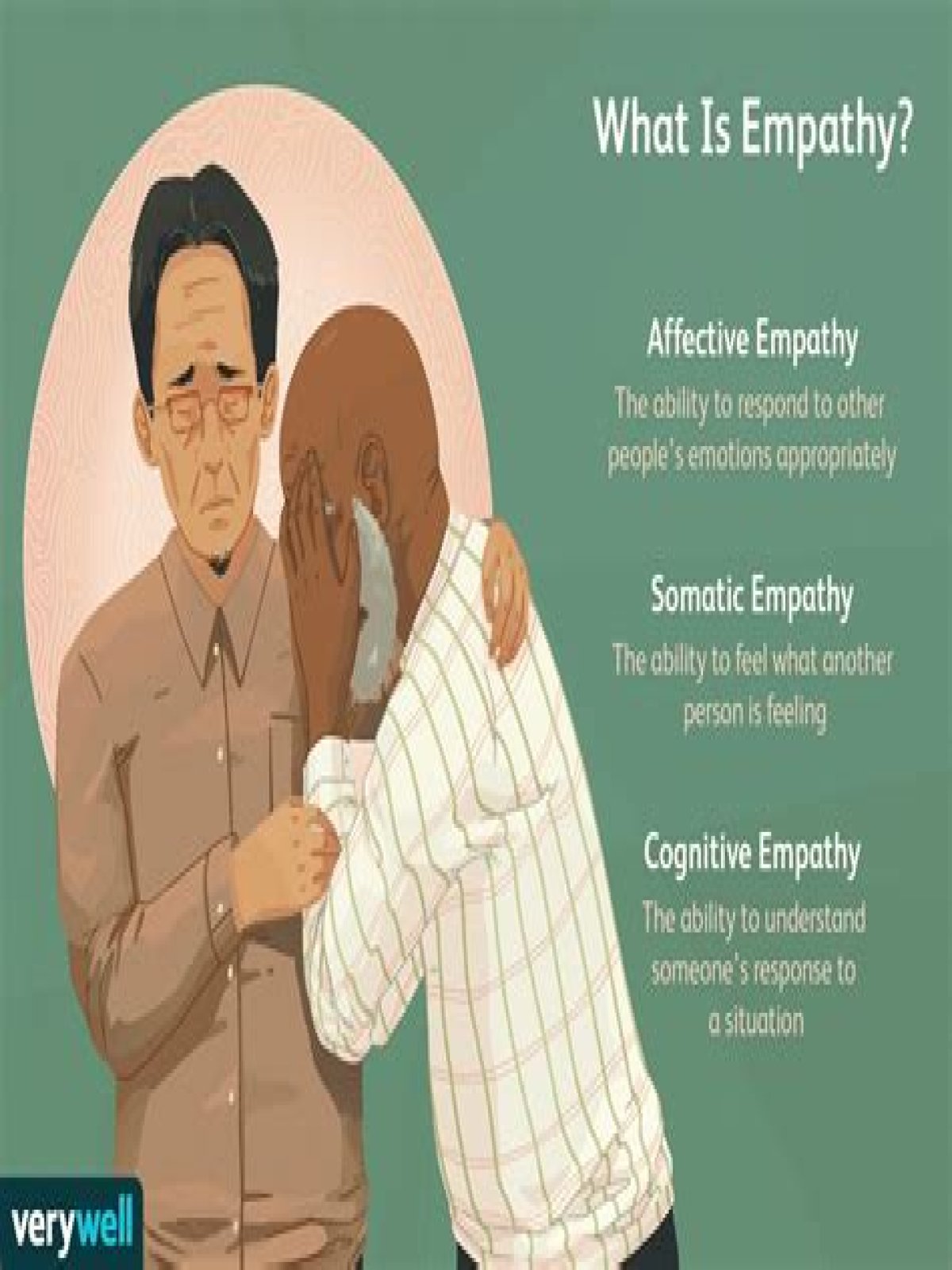What is the definition of empathy in psychology?
References. What is Empathy? A Definition. According to the Merriam-Webster Dictionary, empathy is: “the action of understanding, being aware of, being sensitive to, and vicariously experiencing the feelings, thoughts, and experience of another of either the past or present without having the feelings, thoughts,
What are the cardinal features of empathy?
A cardinal feature of empathy is that it usually helps connect people to others. Because of the evolutionary development of this brain-based capacity, affective empathy, or emotional sharing, most easily occurs among members of the same “tribe”.
What are the benefits of empathy in society?
Benefits of Empathy. There are a number of benefits of being able to experience empathy. Some of these include: Empathy allows people to build social connections with others. By understanding what people are thinking and feeling, people are able to respond appropriately in social situations.
What is the difference between somatic and emotional empathy?
Such emotional understanding may lead to someone feeling concerned for another person’s well-being, or it may lead to feelings of personal distress. Somatic empathy involves having a sort of physical reaction in response to what someone else is experiencing.
Empathy is a spontaneous sharing of affect, provoked by witnessing and sympathizing with another’s emotional state. In a way we mirror or mimic the emotional response that we would expect to feel in that condition or context, much like sympathy. Unlike personal distress, empathy is not characterized by aversion to another’s emotional response
What is the paradigm case of an empathic interaction?
The paradigm case of an empathic interaction, however, involves a person communicating an accurate recognition of the significance of another person’s ongoing intentional actions, associated emotional states, and personal characteristics in a manner that the recognized person can tolerate.
What are the pitfalls of emotional empathy?
Pitfalls: Can be overwhelming, or inappropriate in certain circumstances. Emotional Empathy, just like is sounds, involves directly feeling the emotions that another person is feeling. You’ve probably heard of the term “empath,” meaning a person with the ability to fully take on the emotional and mental state of another.
What is the difference between empathy unipathy and emotion?
To explain why empathy is commonly merged with emotions), and unipathy (an intense form of transpathy). According to Ickes, such terms distinction is maintained. Ickes noted that empathy is located in the mid-range for all three of introduced nearly a century ago.”
What are the three components of emotional empathy?
Emotional empathy consists of three separate components, Hodges and Myers say. “The first is feeling the same emotion as another person … The second component, personal distress, refers to one’s own feelings of distress in response to perceiving another’s plight …
What is empathy quotient?
Their empathy questionnaire, called the empathy quotient (EQ), defines empathy as including a cognitive component—a “drive to attribute mental states to another person/animal”—and an affective component, entailing “an appropriate affective response in the observer to the other person’s mental state” (168).
What is the meaning of empathetic capacity?
Empathy means the capacity of comprehending what another person is experiencing from within the other person’s frame of reference. It means that one can place oneself in another’s position.
What do you call a person who is very empathetic?
People described as empathetic or empathic due to being very sensitive to the emotions of others are sometimes called empathists or empaths. A less common and more specific sense of empathy refers to the process of projecting one’s feelings onto an object.
What does empathy mean in art?
/ ˈɛm pə θi /. the psychological identification with or vicarious experiencing of the feelings, thoughts, or attitudes of another. the imaginative ascribing to an object, as a natural object or work of art, feelings or attitudes present in oneself: By means of empathy, a great painting becomes a mirror of the self.
